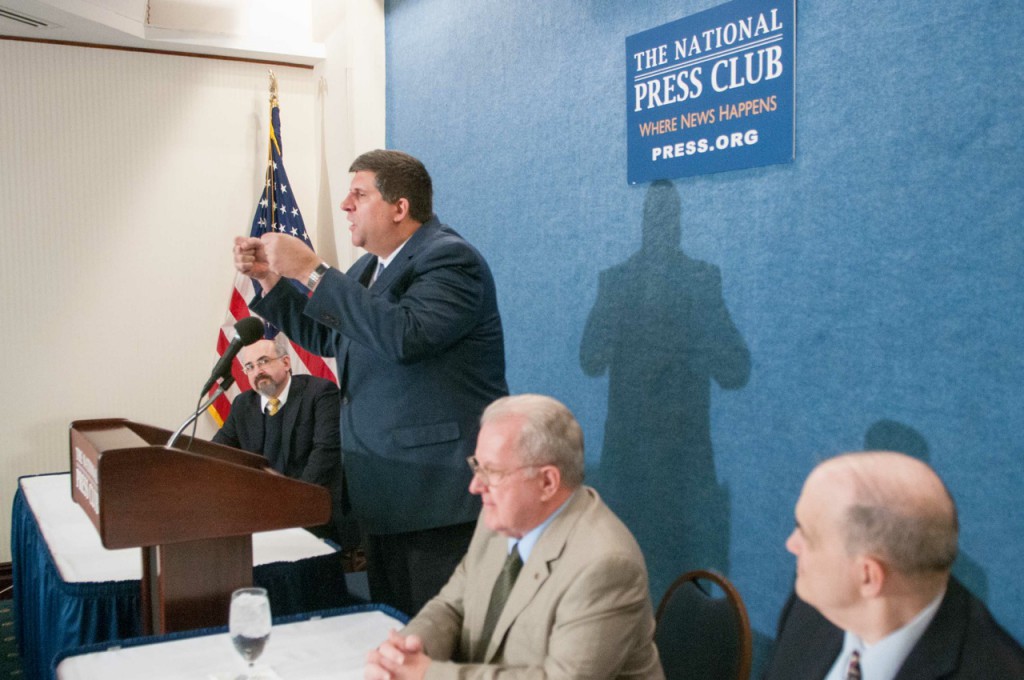By Peter Kraska
Even though I was the first academic to identify, research, and write about these trends — even I would not have predicted the extent to which the Military Model would overtake the Community Policing reform movement so rapidly. Community policing reforms came about as a corrective to the 1950-60s professional police model which created a large gulf between police and citizens. Few noticed that underlying all the CP rhetoric was a little noticed yet foretelling trend of para-militarism as found in SWAT teams. What we’re witnessing today, though, with the influence of the Dept. of Homeland Security since 9/11 — along with growing emphasis on military hardware and tactics — is the expansion of police militarization throughout entire police departments — and indeed, the entire police institution.
This expansion is having a dramatic impact on how the police perceive the public (more as enemy combatants than citizens of the community they are serving) as well as how the public perceives the police (more as an occupying force that cares only about maintaining law and order through military style tactics, hardware, and appearance). This dynamic can readily lend itself to the police using deadly force inappropriately, and to the public reacting to these incidents with outrage and complete distrust of what they perceive as an occupying force that does not have their best interest in mind. In short, the police lose all legitimacy in the eyes of the people they are serving — which only reinforces a we vs. they mentality among the police. This has been the danger inherent in this well-documented trend toward police militarization; this is the ugly reality that is playing out in Ferguson, Missouri.
 President Obama’s major address on NSA surveillance on Friday, Jan. 17, the Institute for Public Accuracy held a news conference with noted NSA veterans and whistleblowers.
President Obama’s major address on NSA surveillance on Friday, Jan. 17, the Institute for Public Accuracy held a news conference with noted NSA veterans and whistleblowers.
 Edward Snowden may go down in history as one of this nation’s most important whistleblowers. He is certainly one of the bravest. The 29-year-old former technical assistant to the CIA and employee of a defense intelligence contractor has admitted to disclosing top secret documents about the National Security Agency’s massive violation of the privacy of law-abiding citizens.
Edward Snowden may go down in history as one of this nation’s most important whistleblowers. He is certainly one of the bravest. The 29-year-old former technical assistant to the CIA and employee of a defense intelligence contractor has admitted to disclosing top secret documents about the National Security Agency’s massive violation of the privacy of law-abiding citizens. One has to believe in something or someone in order to betray it or them.
One has to believe in something or someone in order to betray it or them. John Kennedy used to say, “Domestic policy can hurt us; foreign policy can kill us.”
John Kennedy used to say, “Domestic policy can hurt us; foreign policy can kill us.” Cuernavaca, Mexico — In 2011, some 12,000 people were murdered in situations presumably related to the
Cuernavaca, Mexico — In 2011, some 12,000 people were murdered in situations presumably related to the 